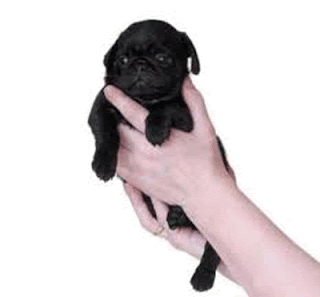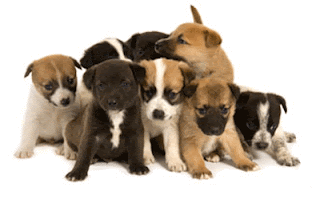Everyone loves pups, but when they start biting it may cause problems, so you will need to stop them biting as soon as you can. Many owners don't understand that this behavior may lead to problems with dominance and aggression later in the dog's life, irrespective of how adorable it might appear when your puppy dog is rolling around on the floor.
The truth is, nearly all puppies learn to stop biting when they are still very small. Since they have a lot of siblings in their litter, they quickly learn that whenever they bite, they get bitten back. By the time a puppy is eight weeks old, it should have learned to not bite. The issue is usually that the mother does not always get eight weeks to stop puppy biting.
The Early Days
If you take any puppies home which haven't been with their mother for that first 8 weeks, or that have not realized that they shouldn't bite, then you will need to spend time training puppies not to bite.
First thing's first. Never hit your dog in reaction to the bite. If they don't think you're playing, they could become scared of you, developing significant phobias and anxieties that can cause aggression issues later in life.
To be able to effectively stop puppy biting, you must understand why it's biting. To achieve this, you need to encourage any good behaviors and discourage any negative behaviors. You should be careful to make sure that the puppy knows you are not playing games. Avoid wrestling, tug of war, or chase games that may cause nipping by the puppy.
When training puppies not to bite, consistency is paramount! If you desperately want to stop puppy biting, you can't grow soft or let the dog get away with anything. You're doing this for its own good.
The Training
A variety of classes are available for training puppies not to bite that you should enroll on. The trainers will use methods much like what the puppy's mother would've used in order to teach the puppy that biting isn't tolerable. It is also good for your puppy to learn to socialize with other dogs as well. It shows your dog to react well to other dogs on the street and can minimize any aggression they demonstrate toward other dogs.
While training puppies not to bite, one of several major methods is to redirect the biting to something else for instance a bone or perhaps a chew toy.In the early stages of the training, route any attempts at biting to something they are allowed to chew for example a bone. Saying "No!" and giving them something else to chew and bite will make them learn that it is not okay to bite you, but that they're allowed to bite the bone or chew toy.
Making a hurt sound if the puppy bites you is also a very good method. This would mirror the reaction a puppy receives when it bites its litter mate. The puppy does not want to injure you and by making a small yip or whine they will know they have. This should be enough that the puppy lets go and leaves you alone. More Pomeranian problems are listed here.
If your puppy is quite young, training it not to bite is one of the first and most significant lessons it must learn. By the time the puppy is 10 weeks old, it should recognize that biting is not allowed. It'll make the years to come much less stressful and the risk of potential aggression in the long run much lower.




